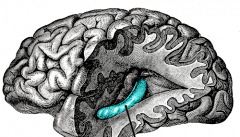
Science Journalism
Déjà-vu: A scientific phenomenon or an explanation worthy of a sci-fi movie?
Have you ever had this weird feeling, where you’re doing something and suddenly, you think “no, wait, I swear I already lived through this situation before!”? Well, this is called a Déjà vu
Déjà vu is the French for already seen. This phenomenon happens to about 70% of the population, generally during their teens and early adult age. It somehow seems to stop with aging. Déjà-vu is still an unexplained concept and is theorised a lot. But the fact that this phenomenon happens randomly to anybody, without precise links to any medical condition makes it difficult to study. Hence, a lot of theories exists, from scientific or “rational” ones to far-fetched, linked to religious beliefs, or worthy of science fiction movie ones.
But first, we need to make clear what déjà vu is. In fact, sometimes when you are feeling like you have already lived through a situation, the thing is you indeed already lived it, you just do not really remember it. In this case, it is not really déjà vu, because you did already experience this situation before. We will talk about this case again a bit later.
Among the theories, some people think déjà-vus are linked to a previous life, for example if they go to a place and experience déjà vu, they will think they have been to this place in their previous life. Another theory is that you had a premonitory dream, hence you remember this situation you’re in, because you dreamed of it. Maybe, it is also a sign of a parallel universe, or a telepathy experience where you received information about this situation from somebody else that lived through a similar one. Perhaps, somebody even implanted this memory into your brain. All these theories are present in a lot of movies, TV series, books, animations or even songs (more than 30 songs bear in their names the word Déjà vu!), such as Mr Nobody, Fight Club, Steins;Gate, Dr House… But the thing is, all of these explanations do not really show physically what happens in your brain when you experience a deja vu.
One thing we observed, is that patients with epilepsy are likely to have a déjà vu experience just before a seizure, but in this case, it can also be accompanied by visual and auditory hallucinations, and a feeling of anxiety/fear. In this case, this is the stimulation of the area in the brain just under the Hippocampus that “creates” the déjà vu feeling for 11% of the cases. Déjà vus are also observed in a lot of patients with other neurological disorders, such as Alzheimer's disease, post-traumatic symptoms, bipolar syndromes or depersonalisation. However, in these cases, people are still debating on whether we can qualify these experiences as déjà vus or not.
But for people who do not have any psychiatric or medical issues, what are the theories about this odd feeling?
The first theory, we already talked a bit about just above, is the easiest one. It is when the feeling of deja vu is not really deja vu. It is called cryptomnesia, which is the feeling of familiarity that could be happening because you’ve actually had the same experience in the past but don’t remember it. The moment is printed as a memory in your brain, you have no idea that it happened but when you have a really similar experience, the previous memories come back into your mind and therefore, you feel a deja vu.

The second theory is more related to the brain functioning. Halgren et al. (Brain 1978; 101: 83–117) showed that the dreamy state can be evoked by stimulation of the hippocampal formation and amygdala. In order to resolve the importance of those areas, they did experiments on epileptic patients with electrodes implanted into different brain areas. Sixteen patients, all with seizures involving the temporal lobe, experienced deja vu either as a result of spontaneous seizures , or due to electrical stimulation or to chemical activation . Thus, we conclude that the dreamy state (causing deja vu) probably depends upon a neuronal network that engages the temporal lobe, and that the anterior hippocampus has relatively privileged access to this circuit.
In 1964, Robert Efron of Boston's Veterans Hospital proposed that déjà vu is caused by dual neurological processing caused by delayed signals. Efron found that the brain's sorting of incoming signals is done in the temporal lobe of the brain's left hemisphere. However, signals enter the temporal lobe twice before processing, once from each hemisphere of the brain, normally with a slight delay of milliseconds between them. Efron proposed that if the two signals were occasionally not synchronized properly, then they would be processed as two separate experiences, with the second seeming to be a re-living of the first.
We can conclude that this weird and spontaneous phenomenon, that we almost all experienced at least once, has no real and proven explanation. Several theories exist, you can either stick to a surreal hypothesis or to scientific one. The brain is extremely complex which makes it hard to study and understand. However, the only thing we can say is that a deja vu is always a comical and weird experience, except when it is a continuous feeling, this in fact happened to a 23-year-old British man, but doctors concluded his condition was due to LSD.
Archer Jade
Belkacem Rayan
Falise Julie

